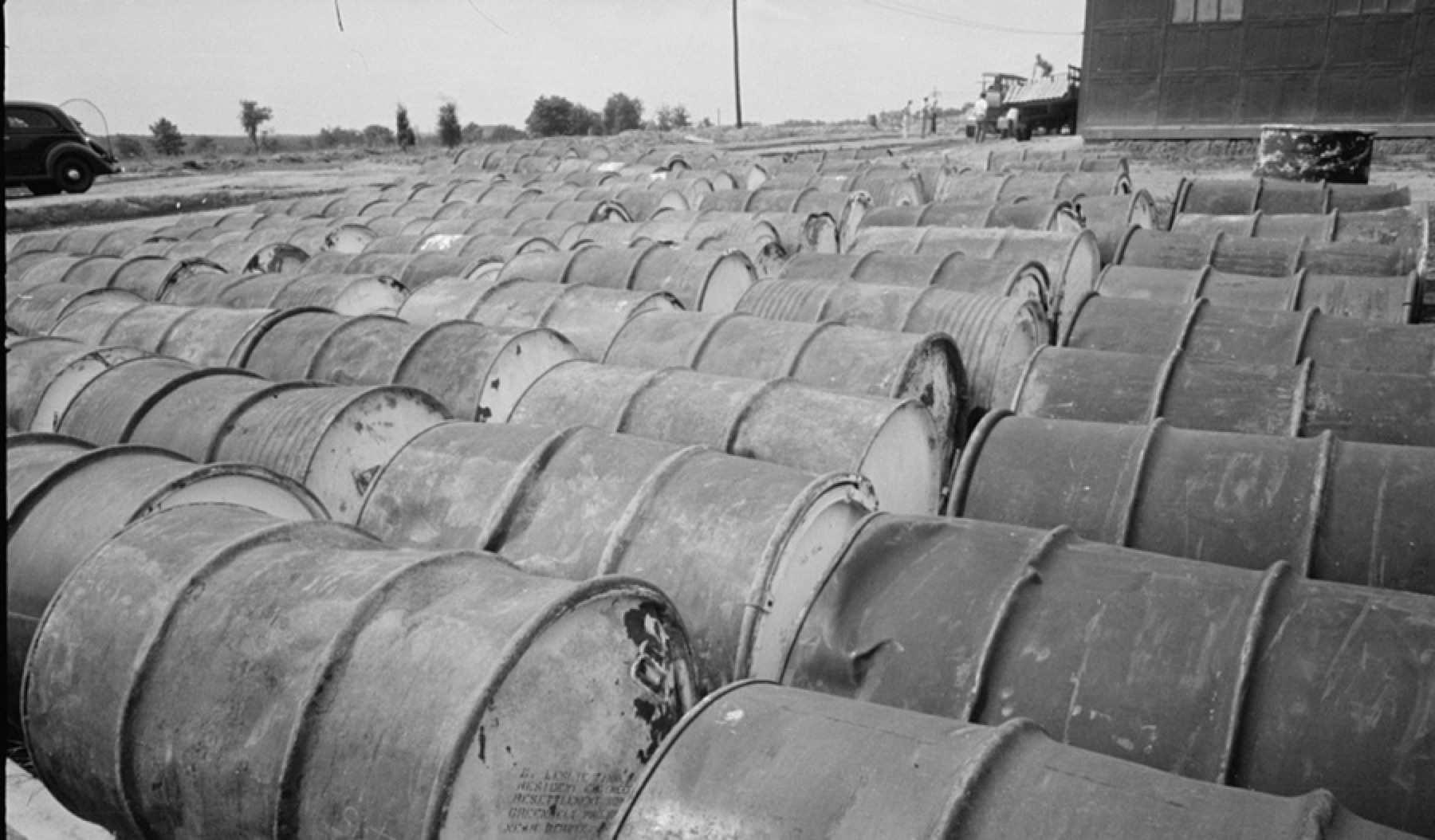
"Barrels of Tar" (1936) by Carl Mydans from the Library of Congress
Hellbender
By Nickole Brown
HELLBENDER
It’s not what you think, not a back-tease aerosol of a band
head-banging to a half-cracked amp nor the flame-decal of a beater
revving the gravel lot out back, hungry for a big-tiddied girl to stumble
out cork high and bottle deep. No, the 80s are long gone, just like
these two-foot writhers jerked from the waters by fishermen
who boot-crushed their harmless catch on the shore, fearing them
venomous, naming them for the ugliness they saw—a hellbender, as in bent
on returning to hell, as in a snot otter or a lasagna lizard, as in a miracle
of a salamander that needs mountain streams clear and cold, a remnant
of that other world that hasn’t been safe ever since the early settlers
thickened that water black with buckets of tar to slow redcoats coming their way—
a tale that got us our own derogatory name—tar heels—
even good old Walt thumbing his nose at the South, calling us tar boilers, calling us
trash. Ain’t it a shame, though, how we forgot one name and let it die
along with the being that we gave that name, while the other name
we reclaim, painting it blue across our faces and chanting it at football games?
Nickole Brown reads “Hellbender.”
Unable to embed Rapid1Pixelout audio player. Please double check that: 1)You have the latest version of Adobe Flash Player. 2)This web page does not have any fatal Javascript errors. 3)The audio-player.js file of Rapid1Pixelout has been included.
Enjoy this poem? Subscribe to the Oxford American.


